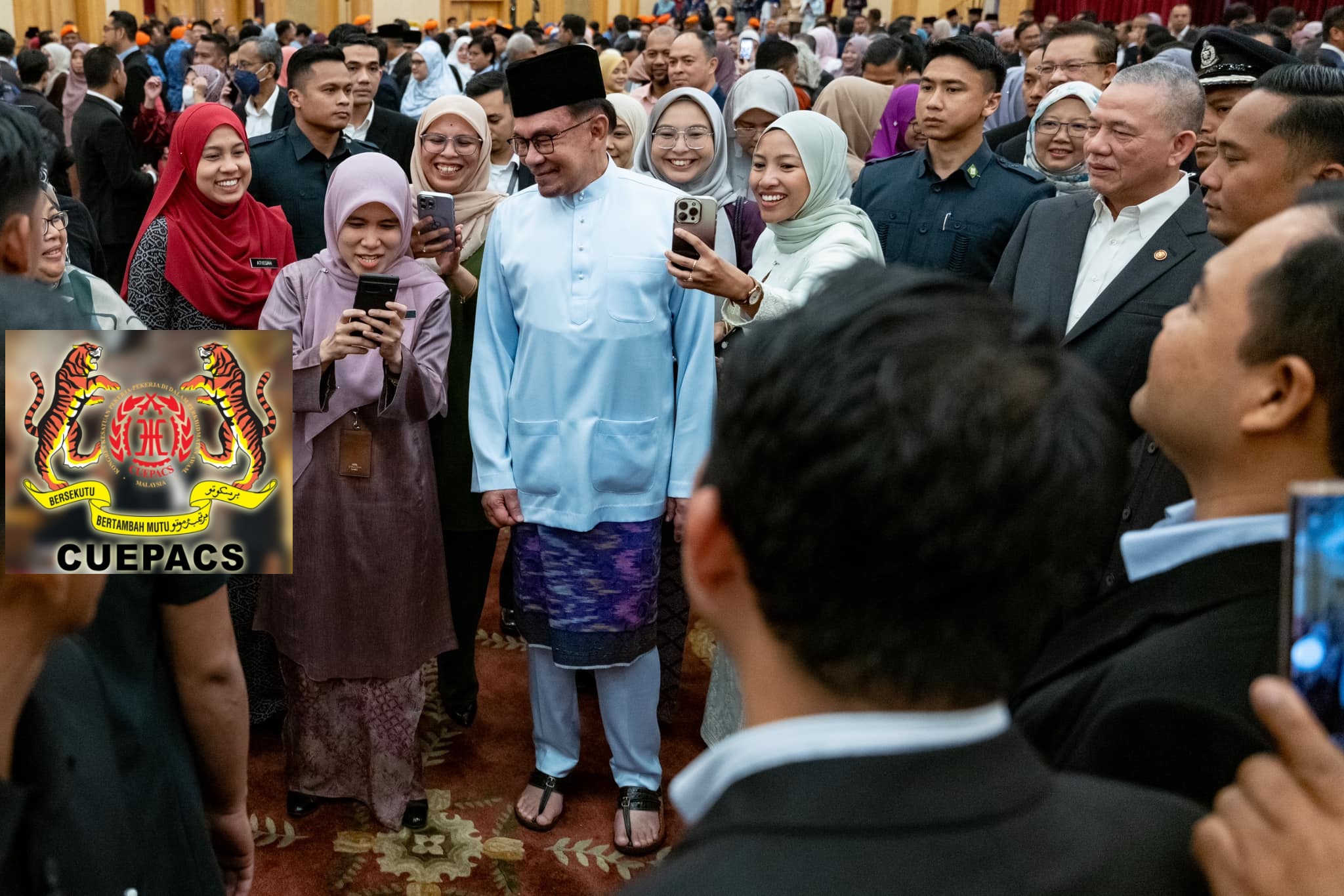IT is no secret that the unity government’s Achilles heel is its fledgling support from the Malays which forms the biggest chunk of the electorate.
This has been proven based on the outcome of the 15th General Election (GE15) in November 2022 and subsequently the six states elections on Aug 12 last year.
These polls show that the Perikatan Nasional (PN) coalition comprising Bersatu, PAS and Gerakan has made significant inroads in Malay seats and pose a serious threat to the unity government come the next general election. Or to the forthcoming Kuala Kubu Bahru by-election which PN has expressed confidence in wrestling control of the state constituency.
So, it came as no surprise that the unity government is going all out to win the hearts and minds of the Malay electorate ahead of the next GE which must be called by 2028.

So, when Prime Minister Datuk Seri Anwar Ibrahim announced today (April 1) that the Malay-dominated government servants will be getting RM500 aid starting Friday (April 5) in conjunction with Hari Raya which is likely to be celebrated on April 10-11, many are quick to link it as an attempt to woo the community rather than treat that as an April Fool’s joke.
This is because just over a week ago on March 24, Anwar who is also Finance Minister had brushed aside speculations that civil servants would not be getting their Raya aid which they traditionally received just before the festivity.
This was because – according to Anwar’s justification – the RM2,000 early incentive payment disbursed recently by the government to civil servants has taken into account Hari Raya as well.
Most certainly, Anwar’s about-turn came following calls by the Congress of Unions of Employees in the Public and Civil Services (CUEPACS) last Friday (March 29) for him to re-consider the decision.
Its president Datuk Dr Adnan Mat was quoted as saying that it hoped Anwar would continue the tradition of providing this assistance, which had been in place for the past 10 years.
So far, no official reasons were cited for the U-turn. But definitely, it’d cost the Government hundreds of millions or more to put ‘extra money twice’ in the pockets of over 1.7 million civil servants in Malaysia which many has described as “bloated”.
How would these extra expenses add value to the service delivery of the civil service? Where are these funds coming from and is the Government slashing allocation from other planned expenses such as healthcare and education?
Given that Anwar himself has personally acknowledged that Malaysia’s national debt including liabilities has ballooned to RM1.5 tril and should be addressed urgently, shouldn’t the Raya bonus be given only to lower-grade government staff such as those in the clerical category instead of almost across-the-board (from Grade 56 and lower including contract appointees)?
Didn’t Anwar earlier claim that the government has to be more prudent in spending due to the excesses of the previous governments? If so, why the reckless and ill-planned Raya aid that runs into hundreds of millions or more?
When Pakatan Harapan (PH) was in the opposition, it had attacked the now incarcerated premier Datuk Seri Najib Razak who was liberally handing out cash to buy support, especially from the Malays.
Najib’s “cash is king” strategy did not work as he was toppled during the 2018 general election against the backdrop of mounting public anger over the 1MDB (1Malaysia Development Bhd) scandal.
Anwar should learn from this episode that there’s only so much cash can do in politics.
If Anwar is serious in wanting to win over support of not just Malays – but Malaysians as a whole – he should focus on fulfilling PH’s electoral pledges, including addressing concerns like spiralling costs of living affecting the entire nation. – April 1, 2024
Images credit: Datuk Seri Anwar Ibrahim’s Facebook










